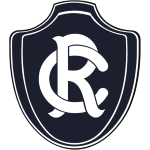| Coach | NA |
| Venue | Estádio Estadual Jornalista Edgar Augusto Proença |
remo predictions
Predictions for remo: See upcoming and historic predictions for remo below.
Disclaimer: Past performance does not guarantee future results. Betting involves risk; only wager what you can afford to lose. Always gamble responsibly.
remo latest results
remo Players
| Players | Position |
|---|---|

Claudinei Junio de Souza
Brazil
|
Midfielder |

Marciel Silva da Silva
Brazil
|
Midfielder |

Lucas Pereira Mendes
Brazil
|
Defender |

Ícaro Cosmo da Rocha
Brazil
|
Defender |
About remo
Clube do Remo, commonly known as Remo, is a renowned football club based in Belém, Pará, Brazil. Founded on February 5, 1905, it is one of the oldest and most traditional football clubs in Brazil. The club's name, which translates to "Oar Club," is a nod to its origins as a rowing club. The team's colors, blue and white, are a tribute to the Virgin of Nazareth, the patron saint of the city of Belém.
Remo has a rich history in Brazilian football, with its peak period being the 1990s and early 2000s. The club has won the Campeonato Paraense, the top football league in the state of Pará, an impressive 47 times. Despite its regional success, Remo has yet to claim a national title, although it has competed in the top tier of Brazilian football, the Série A, on several occasions.
The club's home ground is the Baenão Stadium, officially known as the Estádio Evandro Almeida. It has a seating capacity of approximately 13,000 spectators. The stadium, like the club itself, is steeped in history and tradition. It has been the site of many memorable matches and has seen some of Brazil's best footballers grace its pitch.
Remo has a fierce rivalry with Paysandu, another club based in Belém. Matches between the two teams, known as the Re-Pa derby, are some of the most heated and passionately contested in Brazilian football. The rivalry extends beyond the pitch, with both sets of fans taking immense pride in their respective clubs.
Over the years, Remo has produced several notable players who have gone on to have successful careers both in Brazil and abroad. Among them are Agnaldo, who played for the Brazilian national team, and Giovanni, who had a successful career in Europe, playing for clubs like Barcelona and Olympiacos.
Despite facing financial difficulties and relegation battles in recent years, Remo remains a beloved institution in Pará and Brazilian football. The club's passionate fan base, known as the "Fenômeno Azul" or "Blue Phenomenon," is renowned for its unwavering support, turning out in large numbers for home and away matches alike.
The club's mission is not just about football; it is also committed to social responsibility. It runs several community programs aimed at promoting sport and healthy living among young people in the region.
In summary, Clube do Remo is a club with a rich history and a passionate fan base. Despite its challenges, it continues to be a symbol of pride for the people of Pará and a significant contributor to Brazilian football.
















